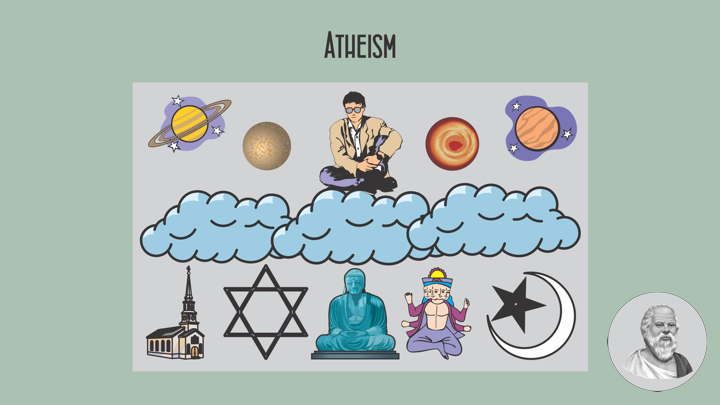——
#Spirituality #Philosophy #Atheism #WorkLifeBalance
——
——
Atheism
The term “Atheist” describes a person who does not believe that God or a divine being exists. Worldwide there may be as many as a billion atheists, although social stigma, political pressure, and intolerance make accurate polling difficult. For the most part atheist and they have argued that the evidence in favor of God’s existence is too weak, or the arguments in favor of concluding there is no God are more compelling.
Atheism, in the broadest sense, is an absence of belief in the existence of deities. Less broadly, atheism is a rejection of the belief that any deities exist. In an even narrower sense, atheism is specifically the position that there are no deities. Despite the fuzzy definitions, researchers are beginning to home in on the factors that influence whether someone believes. According to this line of thinking, people with stronger analytical abilities are more likely to be nonbelievers, since belief in a higher power requires having faith in something that can’t be proven. The flip side of that argument is that believers may be more inclined toward intuitive thinking trusting their guts that a god exists, even in the absence of hard evidence.
Atheism is not an affirmative belief that there is no god nor does it answer any other question about what a person believes. It is simply a rejection of the assertion that there are gods. Atheism is too often defined incorrectly as a belief system. To be clear: Atheism is not a disbelief in gods or a denial of gods; it is a lack of belief in gods.
Atheism is not a belief system nor is it a religion. While there are some religions that are atheistic, that does not mean that atheism is a religion. To put it in a more humorous way: If atheism is a religion, then not collecting stamps is a hobby.
Despite the fact that atheism is not a religion, atheism is protected by many of the same Constitutional rights that protect religion. That, however, does not mean that atheism is itself a religion, only that our sincerely held lack of beliefs are protected in the same way as the religious beliefs of others.
Science is based on the observation that the universe is governed by natural laws that can be tested and replicated through experiment. It serves as a reliable, rational basis for predictions and engineering. Like scientists, scientific skeptics use critical thinking to decide claims. They do not base claims on faith or other unfalsifiable categories.
Luc Paquin

